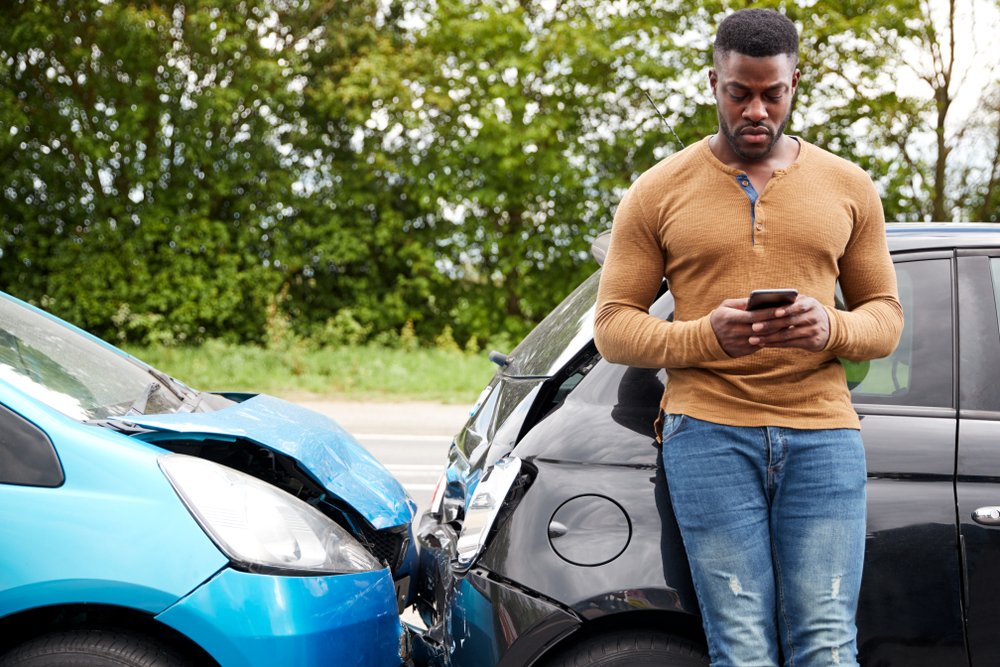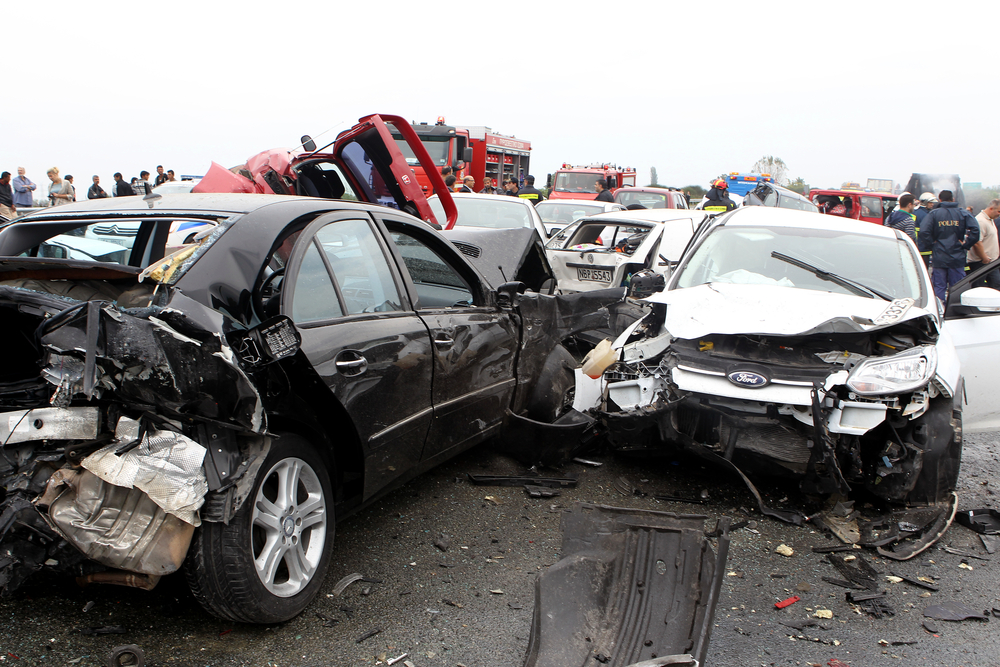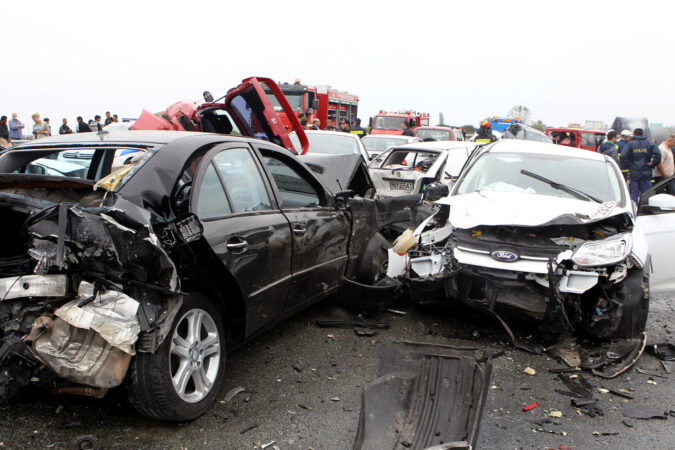
Determining Liability

Determining liability in car accident cases is crucial for establishing who is responsible for the damages and injuries sustained. Several factors are considered when assessing liability, including:
- Negligence: Negligence refers to the failure to exercise reasonable care, which results in harm to another party. In car accident cases, negligence can be established by proving that the at-fault driver breached their duty of care, causing the accident and subsequent injuries.
- Breach of Duty: To prove negligence, it must be demonstrated that the at-fault driver breached their duty of care. This duty requires drivers to operate their vehicles with reasonable care and attention, adhering to traffic laws and regulations.
- Causation: Establishing causation involves proving that the at-fault driver’s negligence directly caused the accident and resulting injuries. This requires a clear connection between the driver’s actions and the harm suffered.
- Damages: Liability also extends to the damages incurred as a result of the accident. These damages can include medical expenses, property damage, lost wages, and pain and suffering.
Evidence that can be used to establish liability in car accident cases includes:
- Police reports: Police reports provide an official account of the accident, including details about the vehicles involved, driver information, witness statements, and any citations issued.
- Witness statements: Eyewitness accounts can provide valuable information about the events leading up to and during the accident, including observations of driver behavior and traffic conditions.
- Medical records: Medical records document the injuries sustained in the accident and can help establish the extent of damages.
- Vehicle damage reports: Detailed reports on the damage to the vehicles involved in the accident can provide insights into the severity of the impact and the potential cause of the collision.
- Traffic camera footage: If available, traffic camera footage can offer visual evidence of the accident, capturing the actions of the drivers involved.
Damages and Compensation
In car accident cases, victims can seek compensation for damages suffered as a result of the negligence or recklessness of another driver. Damages can be categorized into two main types: economic and non-economic.
Economic Damages
These damages are quantifiable and include:
– Medical expenses (past and future)
– Lost wages and earning capacity
– Property damage
– Other out-of-pocket expenses related to the accident
Non-Economic Damages
These damages are subjective and can be difficult to quantify. They include:
– Pain and suffering
– Emotional distress
– Loss of enjoyment of life
– Loss of companionship or consortium
The methods used to calculate damages vary depending on the specific circumstances of the case. Economic damages are typically calculated based on bills, receipts, and other documentation. Non-economic damages are often determined by the severity of the injuries and the impact on the victim’s life.
Insurance plays a significant role in compensating victims of car accidents. Most drivers are required to carry liability insurance, which provides coverage for damages caused to others in the event of an accident. If the at-fault driver has insurance, the victim can file a claim with their insurance company to recover damages. However, the amount of compensation available may be limited by the policy limits.
Finding a Car Accident Lawyer

Finding a qualified car accident lawyer in Orlando, Florida, is crucial to protect your rights and maximize your compensation. Consider the following factors when choosing a lawyer:
Experience and Reputation
Look for lawyers who have extensive experience handling car accident cases. Check their track record, success rate, and client testimonials. Research their reputation in the legal community and among past clients.
Fees and Costs
Understand the lawyer’s fee structure and any additional costs associated with their services. Some lawyers work on a contingency basis, meaning they only receive payment if they win your case. Others charge hourly rates or a combination of both.
Interview Potential Lawyers
Interview several potential lawyers before making a decision. Ask about their experience, fees, and approach to your case. Discuss your expectations and goals. A reputable lawyer should be transparent and willing to answer your questions.
Negotiation and Settlement

Following a car accident, negotiating and settling claims is a crucial step towards obtaining compensation for damages. This process involves discussions between the parties involved and their respective insurance companies to reach a mutually acceptable resolution.
Several factors can influence settlement negotiations, including the severity of injuries, the extent of property damage, and the clarity of liability. Additionally, factors such as the strength of evidence, the presence of witnesses, and the negotiation skills of the parties involved can impact the outcome.
Tips for Maximizing Settlement Value
- Gather evidence: Documenting injuries, property damage, and other relevant details is essential for supporting claims.
- Determine liability: Establishing who is at fault for the accident can strengthen your negotiating position.
- Calculate damages: Accurately estimating the extent of damages, both economic and non-economic, is crucial for fair compensation.
- Consider insurance coverage: Understanding the limits of insurance policies can guide realistic settlement expectations.
- Negotiate effectively: Engaging in negotiations with clear communication, a willingness to compromise, and a focus on achieving a fair outcome can lead to a favorable settlement.
Trial
Going to trial in a car accident case is a complex and time-consuming process. It is important to have a skilled and experienced car accident lawyer to represent you and guide you through the process.
The trial process begins with the selection of a jury. The jury will be responsible for listening to the evidence and deciding who is at fault for the accident and what damages should be awarded. Once the jury is selected, the trial will begin with opening statements from the attorneys for both sides. The attorneys will then present their evidence to the jury. Evidence can include witness testimony, police reports, medical records, and photographs. After both sides have presented their evidence, the jury will deliberate and reach a verdict.
The Role of the Judge, Jury, and Attorneys
The judge presides over the trial and ensures that the trial is conducted fairly. The judge also makes rulings on legal issues that arise during the trial. The jury listens to the evidence and decides who is at fault for the accident and what damages should be awarded. The attorneys represent the parties involved in the accident and present evidence to support their claims.
Types of Evidence
There are many different types of evidence that can be presented at trial in a car accident case. Some of the most common types of evidence include:
* Witness testimony
* Police reports
* Medical records
* Photographs
* Expert testimony





